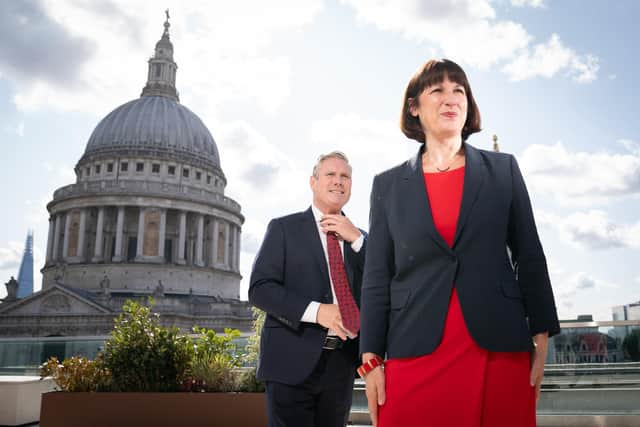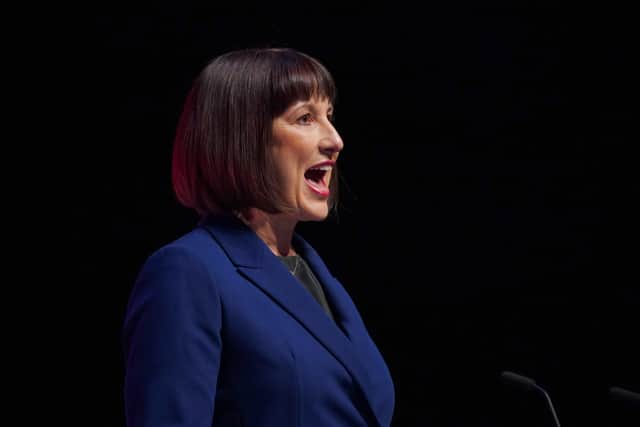Shadow Chancellor and Leeds MP Rachel Reeves on the women who have influenced her and shaped modern economics
Since May 2021, the Leeds West Labour MP has been Shadow Chancellor of the Exchequer – and if she gets the “real job”, as she puts it, following the next General Election, she would make history, becoming the first ever woman to hold the Chancellor position in its 800-year existence. It is against this backdrop that Reeves has written her latest book – The Women Who Made Modern Economics - and she’ll be discussing its contents at two literary festivals in the region over the next few weeks.
“I’ve always strongly felt that every generation of women stands on the shoulders of those who have gone before but women often get written out of our history, whether that’s political or economic history,” she says. “The history of economics does tend to exclude women. I looked at who the senior women are in economics today and which women have helped to make progress over the past hundred years or so. And there are some amazing women.”
Advertisement
Hide AdAdvertisement
Hide AdReeves explores the ideas of economic theorists such as Harriet Martineau, Mary Paley Marshall and Joan Robinson. She also describes and analyses the contributions of today’s policy makers like United States Secretary of the Treasury Janet Yellen, Deputy Managing Director of the International Monetary Fund Gita Gopinath and President of the European Central Bank Christine Lagarde.


“I wanted to show that some of the leading economists in our history have been women,” she explains. “They have helped shaped modern economics, the ideas that influence central banks and treasury departments. It’s a case of knowing who these women are and writing them back into our history.
"Whether it be industrial economics, environmental economics, development economics, welfare economics, in all of these areas, there have been women at the forefront, generating really exciting ideas, testing the boundaries, winning Nobel Prizes and running treasury departments and central banks. There are plenty of women who have helped modern economics and I wanted to tell their stories and hopefully inspire the next generation of women studying and practicing economics today.”
During her career, Reeves has been influenced by many of the women featured. Prior to her time in Parliament, she worked as an economist for the Bank of England and also spent time in the private financial services sector.
Advertisement
Hide AdAdvertisement
Hide AdShe draws in the book on personal experience, relating it to the key work of women past and present who often go uncredited. Within it, she also shares insight into how their work has influenced her as a politician and economist and outlines her vision for the future economy, as the potential next Chancellor of the Exchequer.


“I hope that people have a better understanding from reading of what sort of Chancellor I would hope to be if I had that opportunity next year,” she says. “And of some of the people who have influenced me and have shaped my thinking as an economist and as someone who wants to run the UK treasury department.”
Reeves looks back on the likes of Robinson’s early arguments about the benefits of a minimum wage and Beatrice Webb’s quest for a fairer society, which paved the way for the welfare state. “When these women first made these arguments, they may not have been popular, mainstream views, but in time, their ideas have stood the test of time and helped change Britain,” she says.
She reflects too on Marshall’s support for clustering businesses from the same industry in the same place, in order to make the most of opportunities. It is something she says we are now seeing happen with sectors such as offshore wind in Humberside and carbon capture in North Yorkshire.
Advertisement
Hide AdAdvertisement
Hide Ad“There are big opportunities in industrial policy today as we embrace a shift to a low-carbon or zero carbon economy,” she claims, “massive opportunities for industrial jobs in parts of Britain which really need them.”
Reeves believes there are many women whose contributions to their field have been sidelined or overlooked. It is why, since becoming an MP, she has written extensively to highlight the achievements of some of the nation’s most influential women.
With Alice in Westminster: The Political Life of Alice Bacon, Reeves shared the story of her only female predecessor in a Leeds constituency, documenting Bacon’s journey from the West Yorkshire coalfields to the House of Commons, where she sat as an MP from 1945 to 1970.
Then, with Women of Westminster: The MPs Who Changed Politics, Reeves sought to bring “forgotten” MPs out of the shadows to look at the many battles fought by women in Parliament in the century from 1919.
Advertisement
Hide AdAdvertisement
Hide Ad“Whether it’s politics or economics or any part of the economy or society, we do better when there’s a balance of experience and backgrounds and that means not missing out on the talent of half the population that is women,” Reeves says.
"Whether in economics or politics, I’m always keen to tell the stories of women who have helped to shape the world as it is today.”
Rachel Reeves is In Conversation with Professor Sarah Brown, Professor of Economics and Head of the Department of Economics at the University of Sheffield, as part of Sheffield’s Off The Shelf Festival of Words on Saturday, October 28 at Firth Hall. Visit offtheshelf.org.uk
She will also be in Leeds, at Farsley Literature Festival, on Sunday, November 12. Visit farsleylit.co.uk.
Her book is out now.
